How Long Can a Mother Cat Be Away From Her Newborn Kittens?
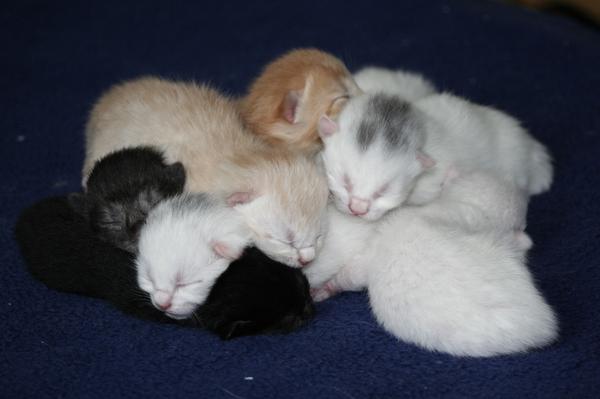
Do you feel that?
That clawing sensation in your chest, fueled by worry and uncertainty.
The seemingly relentless worry about the well-being of those tiny, vulnerable beings. 😟
I understand.
I really do.
So, how long can a mother cat be away from her newborn kittens?
Keep reading to find out.
Is It Normal for a Cat to Leave Her Kittens After Birth?
Temporary absence after birth is normal
It's totally normal for mother cats to take short breaks from their newborn kittens right after giving birth.
So, don't worry if you see your cat wander off for a bit. This time away from her little ones allows her to clean herself up and take care of her own needs before settling down with her adorable bundles of joy.
Newborn kittens require constant care
Once the mother cat has settled down with her kittens, it's super important that she's always available and attentive when her kittens need to feed.
They depend on her milk for all the essential nutrition they need, so make sure she's there whenever they're hungry.
The mother cat plays a vital role in kittens' survival
The bond between a mother cat and her kittens is incredibly important for their survival.
When she breastfeeds them, not only does she provide them with food, but she also passes on antibodies that boost their immune system and protect them from diseases.
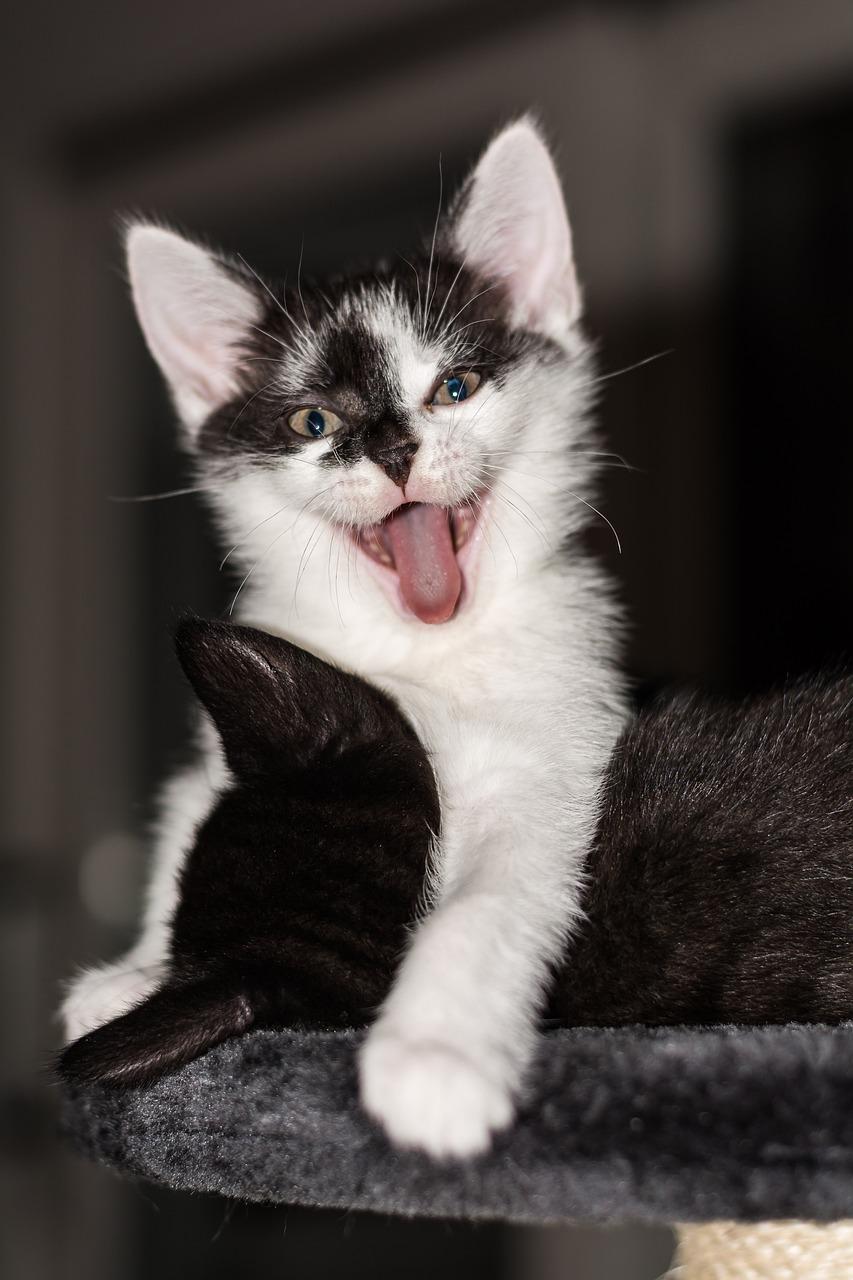
Plus, she teaches her little ones important skills while making sure they stay healthy and safe.
So, it's crucial for you to give the mother cat and her kittens uninterrupted time together.
Let them bond and grow together without any interruptions. Every cat is different, though, so some may need more alone time than others.
If you have concerns about your cat's behavior or worry that she might be abandoning her kittens, don't hesitate to reach out to your vet for guidance and reassurance. They're there to help you and your furry family.
And now, let's delve deeper into why mother cats may temporarily leave their newborn kittens and the reasons behind their behavior.
Why Do Mother Cats Leave Their Kittens?
Mother cats prioritize their own needs to produce enough milk for their growing kittens.
To ensure proper nourishment, they may leave their kittens temporarily.
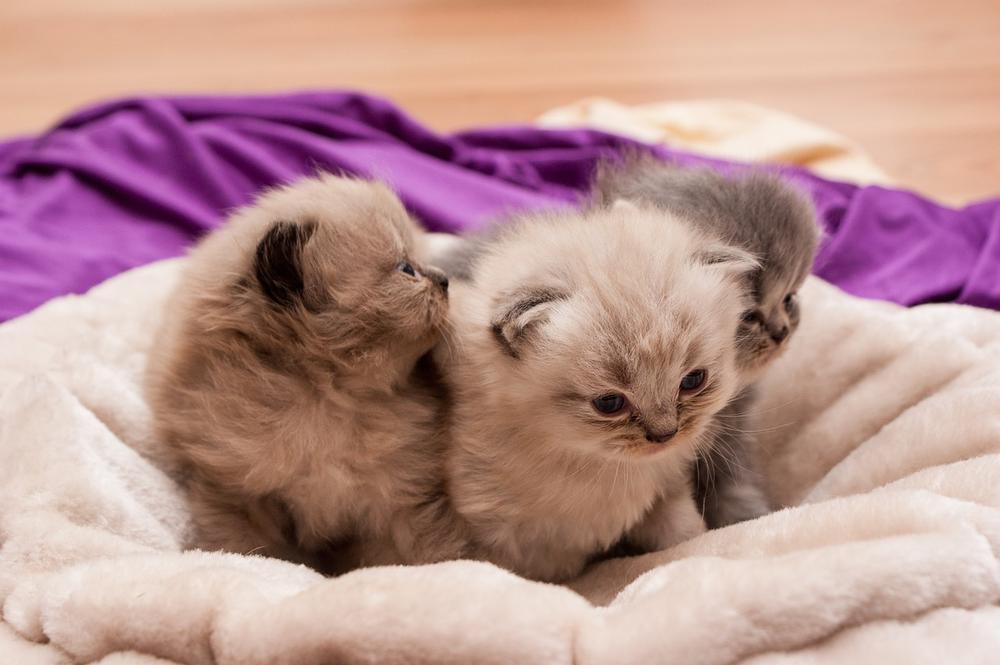
This departure gives them the opportunity to hunt or receive food from humans if necessary.
Mother cats have various reasons for leaving their little ones behind, such as finding sustenance or using the litter tray. Sometimes, in the wild, they might temporarily abandon their kittens while tending to bodily functions or seeking nourishment.
Despite these brief departures, mother cats always aim to fulfill their basic needs and return to their kittens.
In conclusion, it is common for mother cats to put themselves first, even if it means briefly separating from their kittens.
Why Is My Mother Cat Not Taking Care of Her Kittens?
If you notice your mama cat isn't taking care of her kittens, there could be a few reasons behind it.
- It might be mastitis, which is an infection in her boobs that causes pain and swelling, making breastfeeding uncomfortable for her.
- Mama cats have strong instincts to protect and bond with their babies. If she's away from them for too long, she might get separation anxiety and struggle to reconnect with her kittens.
- Some mama cats just don't have the best mom skills or they may have behavior issues that make it hard for them to care for their babies.
- If the mama cat is sick or weak, she might not have the energy to take care of her kittens. In some cases, if the kittens are unhealthy or deformed, she might distance herself from them.
- If the mama cat doesn't show any interest in her kittens or leaves them alone for too long, you might need to step in and get help from a vet. With proper care, abandoned kittens can still turn out alright.
Every situation is different. Find out what's causing the problem and don't hesitate to seek professional help to ensure the best outcome for both mama cat and kittens. 😺
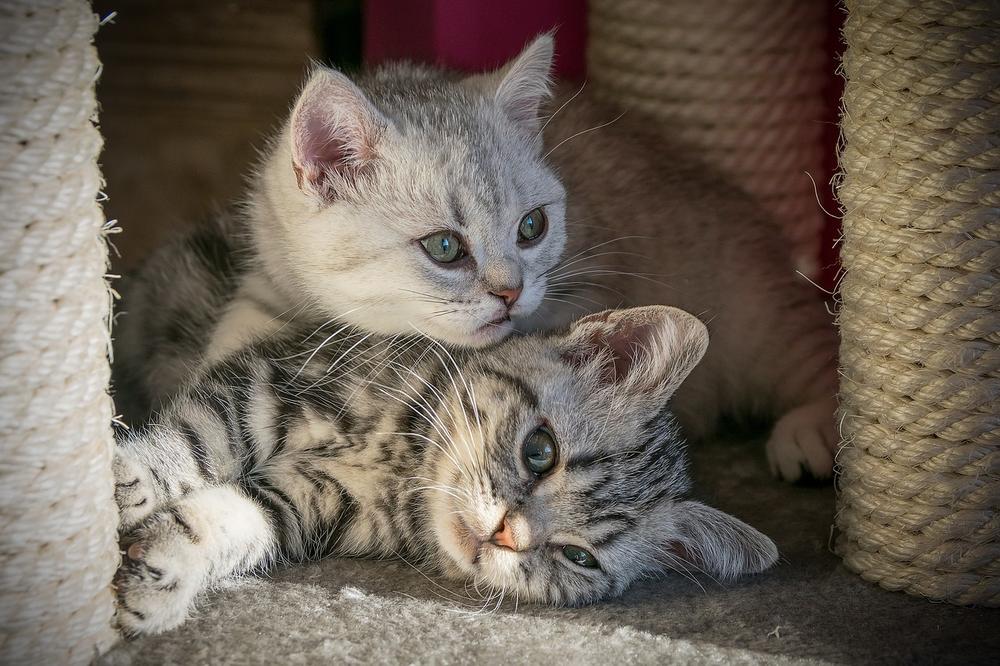
Now, here's what you need to know about the optimal timing for separating mother cats and their kittens.
It's a crucial stage where self-care skills are developed, and understanding the right time will ensure a smoother transition for both mama cat and her offspring:
Separating Mother Cats and Older Kittens
When it comes to separating mother cats and older kittens, timing is important.
Here are some key points to PLEASE bear in mind:
- Gradual separation starting around 12 weeks of age allows kittens to learn self-care skills while still benefiting from their mother's guidance.
- Permanent separation should be attempted after six to eight weeks of age, when kittens are typically weaned and able to explore on their own.
- Avoid separating a cat from her kittens until they are at least 12 weeks old, as this ensures they have enough time to develop crucial self-care abilities.
- Kittens four weeks or older that are being weaned onto solid food may require special care, such as bottle feeding and a specific diet for weaning.
- During the early stages, keeping mother cats and kittens together is crucial, as newborn kittens up to six weeks old rely heavily on their mother's support.
- Minimize short-term separation, especially during emergencies or travel, and consider alternative arrangements whenever possible.
- Comfort objects with the mother's scent, like blankets, can help reduce stress during short separations.
- Early separation from the mother can have negative consequences for kittens, including unnecessary trauma and the need for extra support, possibly resulting in signs of stress later in life.
Patience and careful consideration are essential when separating mother cats and older kittens to ensure their well-being.
And it gets better...
Once you've established safe practices for handling newborn kittens, it's time to delve into the fascinating world of their growth and development.
Learn how these tiny creatures transform from helpless beings into playful bundles of energy in the next section.
But before that, let's explore the crucial aspects of newborn kitten care:
Can We Touch New Kittens?
Before touching new kittens, you must ensure proper hygiene.
Make sure you wash your hands thoroughly and avoid using strong fragrances.
Wearing gentle clothing can also help maintain cleanliness when handling newborn kittens.
Newborn kittens cannot control their body temperature, so they rely on their mother for warmth.
However, if you touch stray kittens too soon, the mother may disown them and see you as a threat.
Consulting a veterinarian is recommended to ensure proper feeding and care for the new kittens.
Handling the kittens themselves will not lead to rejection unless there is immediate danger or discomfort.
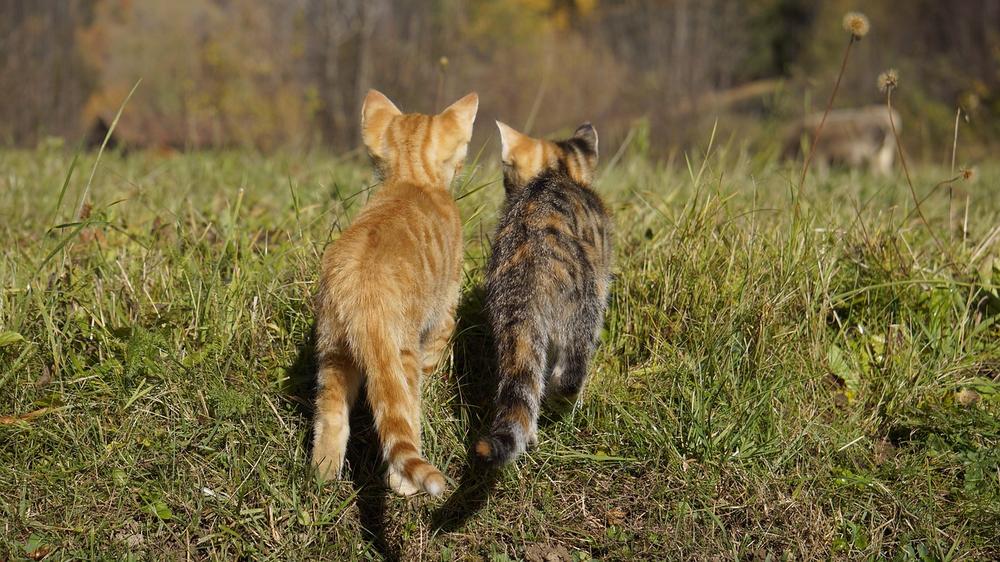
Taking precautions to prevent male cats from getting near nursing kittens is crucial to protecting the litter.
During the first four weeks, the kittens depend on their mother for food, so it's best to refrain from interacting with them unless it's an emergency during the first two weeks.
Starting at two weeks of age, appropriate socialization should be initiated, which may include brief periods of handling.
If you come across abandoned kittens, seek advice from a veterinarian before committing to their care.
And if you're wondering why it's important to handle newborn kittens with care, I can offer some insight.
But for a more comprehensive understanding of why your cat may choose to sleep between your legs, I highly recommend checking out my article Why Does My Cat Sleep Between My Legs.
There, you'll find possible reasons and explanations that could shed light on this curious feline behavior.
Trust me, it's worth the read.
Mother Cat's Instinct to Protect Her Newborns
Key Takeaways:
- Newborn kittens require consistent nourishment from the mother to prevent organ failure.
- Abandoned kittens under two weeks old are unlikely to survive without specialized care.
- The well-being of the mother cat during and after birth is crucial.
- Orphaned kittens should not go 3 hours without being fed.
- Both pregnant and new cat mothers need appropriate rest, alone time, extra food, and regular vet check-ups.
- Bonding between mother cat and kittens is vital for their survival and development.
- Gradually increasing away time and temporary separation for specific activities is necessary.
- Duration of separation depends on the age of the kittens.
- Addressing concerns of abandonment with a vet is important.
- Mother cats may leave their kittens to feed or tend to bodily functions.
- Various factors can lead to mother cat abandonment, including illness and lack of maternal instincts.
- Male cats may not bond with the kittens and can display aggression.
- Interventions may be needed if the mother shows no interest in her kittens or leaves them for extended periods.
- Separation of mother cats and older kittens can occur at 12 weeks old.
- Permanent separation is best attempted after six to eight weeks of age.
And that wraps up today's article.
Before you leave, can I ask you something? Did my blog post help you out at all? If it did, I would genuinely appreciate it if you could share it with your loved ones. Just click on any of the social media sharing icons for an instant share. Thank you so much!
Talk soon,
-Sarah Davis